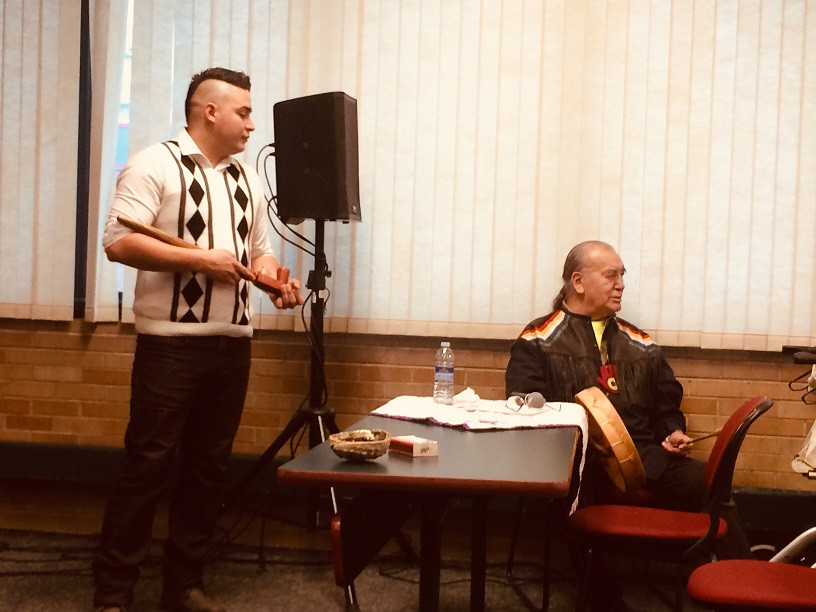Student-led Decolonial Movements in Higher Education
Racialized students work to decolonize post-secondary institutions
As the scent of sage filled Manitoba Hall on the University of Winnipeg (U of W) campus on Oct. 28, students and community members gathered to discuss decolonial movements in post-secondary institutions. This event was facilitated by Karen Swan, a student and senior research assistant at the U of W. Swan organized the event alongside Jeannie Kerr, a professor at the university, as an extension of her research.
The event began with a formal opening and pipe ceremony by Elder Calvin Pompana. Before the song and pipe ceremony, Elder Pompana said “everything that we need today comes from the four cardinal directions, the universe and Mother Earth.” This introduced University of Winnipeg student Monty Withawick’s discussion on what role an Indigenous ceremony should play in decolonial movements.
According to Withawick, ceremony helped him reclaim his oral tradition and the knowledge gained from healing and understanding. Withawick spoke of several issues that many marginalized students face in the classroom when challenging racism or discrimination.
To express his feelings in the face of discrimination, he would not allow himself to become visibly frustrated or upset, because he did not want to portray himself as “another angry Indian. Because if (he) did, (he) would never have peace in his heart.” Instead of becoming upset, he used discrimination against him as a learning opportunity for those around him.
Dr. Kyle Bobiwash, assistant professor of entomology at the University of Manitoba, explained he was initially unsure of how his position as a scientist was influenced by colonialism in academia. He did not see a difference between Western and Indigenous methods of science. It was not until he was in his undergraduate studies that he realized he was solely learning about Western science. In order to decolonize academia, Bobiwash says Indigenous science should not be neglected and should instead be integrated into science curriculums.
One of the leaders of the national FeesMustFall movement in South Africa, Busisiwe Seabe, was seen through a correspondence video, during which she discussed this initiative. The movement was started to deal with the racial and historical legacies in African universities and eventually became a free, decolonized educational movement.
Seabe mentioned that the institutional cultures within universities are often exclusionary, oppressive and stifling, which can impact the daily lives of students. She spoke of the need for curriculum reform and to challenge institutional cultures in academia.
Alois Baleni Sibanda, a PhD researcher from the University of Witwatersrand in South Africa and a Queen Elizabeth II Jubilee Award Visiting Scholar also outlined his experiences as a FeesMustFall activist. He argues that universities are configured in a very colonial way.
“We cannot talk about the university without talking about the state. Once we entertain talk of the state, we are talking politics. If we talk politics, immediately, in an African context, we are talking about colonization. If we talk about colonization, we are talking about racism,” Sibanda says.
In this way, when protesting the colonial nature of universities, people can inadvertently become typified as enemies of the state and enemies of academia. Dissent against university is seen as dissent against the state, and that legacy must be challenged in order for decolonial thinking in academia to shift.
Published in Volume 74, Number 9 of The Uniter (November 7, 2019)







